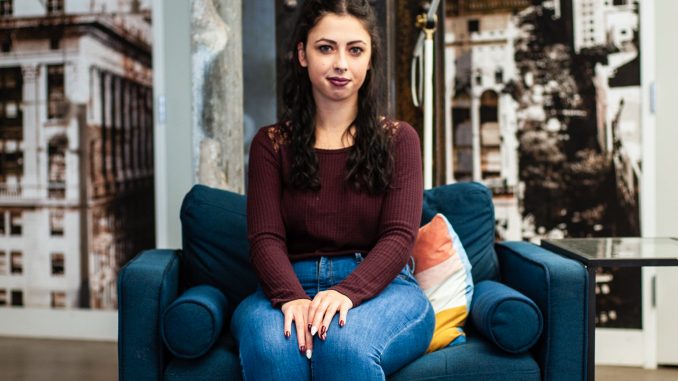
After losing her fiancé to suicide, Jenna Faccenda began wrestling with her life’s purpose.
“Those deep thoughts and how my footprint on this Earth could really be impactful toward someone else,” Faccenda said.
Amid her grief, Faccenda, a 2017 journalism alumna, turned back to her love of writing and ventured to create a community for other artists experiencing trauma. She launched Eclipse Lit, a literature magazine for writers to discuss trauma and heal through their artwork.
With writer submissions open from Oct. 1 through Nov. 15, Faccenda intends to publish her first edition, a collection of short stories, essays and multimedia art from artists around Philadelphia, in March 2021.
The first edition, “Sorrow,” will address issues surrounding depression and suicide prevention, with proceeds from the magazine sales donated to the American Foundation for Suicide Prevention, Faccenda said.
The magazine’s name takes inspiration from solar eclipses, when the sun is momentarily blocked by the moon, she added.
“A period of darkness can enter anyone’s life or anyone’s scenario, but it is that, a period,” Faccenda said. “It is our job as a community or other people to show people who are sometimes lost in the dark this light, and that’s kind of where Eclipse Lit came to mind because I wanted to be able to be that light.”
When she was a child, Faccenda would sit out of recess to write stories in her notebook. In eighth grade, a teacher encouraged her to continue to write stories which helped her realize she could pursue writing as a career, she said.
Now that she’s working at Casemates Publishers in Havertown and turning her hobby into a career, Faccenda has written a novel, poetry and short stories, and her work has been published in The Literary Hatchet and Rhythm and Bones Press, an online literary magazine.
“The literary community here in Philadelphia is definitely very supportive,” Faccenda said. “I’ve enjoyed everyone that I’ve worked with, it’s really great here if writers or artists, just anyone who’s looking to get started or just learn, there’s always somebody willing to help and work with you.”
Courtney Huntzinger, Eclipse Lit’s graphic designer, said the approximately 30-page magazine’s structure represents the message of hope and community behind the brand.
“It’s going to be less of, ‘This is an art section and this is a poetry section,’ it’s really going to be more of everything together,” Huntzinger said. “I’m envisioning it more collage-based from page to page.”
Rashanda Freeman, who works with Eclipse Lit to find funding through CultureWorks Philadelphia, enjoys working on the project, which resonates with her because she’s experienced trauma herself, she said.
“I was so honored that people trust us to hold their projects,” said Freeman, brand awareness director of CultureWorks Philadelphia. “We’ve had so many over the years that are so personal from trauma [information] to suicide prevention.”
Faccenda’s goal is to build a larger community to help people feel like they have a space to express feelings of grief and hope, she said. Because they are discussing mental health issues that many people have experienced, Faccenda wants to reach as many readers as possible and create a safe community.
“This is just one issue,” Faccenda said. “Each issue is going to face a different topic, it’s all related to mental health but a different thing that people are facing, and bringing light to those situations.”
Faccenda wants to continue covering different topics with more literary magazines that relate to the effects of abusive relationships and other traumas people may experience, she added.
While Eclipse Lit may discuss sensitive issues, the magazine is intended for all ages as a way to start conversations about difficult experiences, Faccenda said.
“I wanted to foster a safe space for artists of any kind, or any age that are facing kind of this, the darkness in life,” Faccenda said. “Then taking that next step and really helping all people, not just artists who are facing these issues.”



Be the first to comment